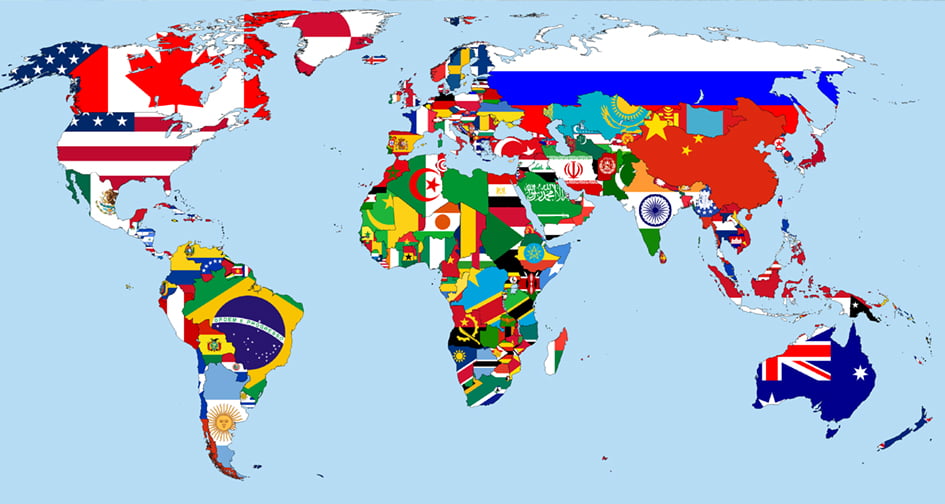There have been numerous attempts to make amendments to the laws governing gambling taxation in the US, but the bias against gambling is still prevalent. This bias is visible in the myriad of anomalies present in US gambling tax laws applying to individual gamblers. The notable bias include:-
- You are required by law to report all winnings you get from gambling activities regardless of the platform. Whether you are in a casino in Las Vegas or on a popular online casino, you must report all winnings.
- As a gambler, you are required to pay tax on all winnings. However, if you incur losses in later bets, you cannot deduct these losses from your initial winnings. You are also not allowed to carry forward any losses until you get to win.
- You, as a gambler, are required to provide irrefutable evidence of the losses and expenses you incur while gambling if you hope to get tax deductions.

Despite being particularly unfair to gamblers, US gambling tax laws are somewhat more lenient towards gambling operators. However, one tax regulation, in particular, has many lottery operators incensed. This law limits the tax deductions that lotteries and raffles can get for charitable donations. Now let us look at some zero gambling tax countries.

Zero Gambling Tax Countries
Canada
You need not go far if you want to experience the benefits of gambling in a Zero Gambling tax country. Our Northern neighbor, Canada, is one such country. Even if no one requires you to pay taxes on your winnings, you avoid incurring penalties when you get caught engaging in particular forms of gambling. It turns out that some types of gambling are illegal in some states, even when legal in others. Why is this so? It is because, in Canada, gambling laws are state by state. So be keen to find out the forms of gambling allowed in the state you visit.
Other than the above precaution, Canada will offer you a myriad of ambling options. You will be to choose between casinos, horse and dog racetracks, live lottery terminals, bingo halls, and ticket lotteries. You certainly won’t be disappointed if you have the desire to splash some money around. Canada has some renowned Vegas-style casinos such as the Niagra Falls View Casino, the Montreal Casino, and Caesars Ontario.
Casinos that will allow you to enjoy the picturesque scenery during the day before the fun-filled night of gambling include the Manoir Richelieu and Mont Tremblant casinos. While you are in Canada, rest assured that the establishments you visit will bear the tax burden leaving with none at all.
Australia
If you happen to be planning a trip to the land down under, then there are a few things you need to know about the gambling tax regime in Australia. Australia gambling tax laws clearly outlines the grounds for considering player winning non-taxable. These grounds are
- Gambling is not perceived as an income-generating profession but seen as a recreational activity
- Winnings from gambling are not considered to be the result of effort but as a result of luck
- Taxing gambling operators revokes the necessity of taxing individual gamblers.
Australia does have stringent gambling tax laws that only apply to gamble operators. Casinos, bingo halls, lotteries, and other gambling operations are taxed depending on the platform they offer. Australian gambling tax laws define four gambling platforms, i.e., wagering, gaming, casino, and lotteries. Wagering relates to horse and other forms of animal racing; gaming refers to the use slot machines; casino includes all card and table games. Finally, lotteries refer to ticket and live lotteries.
The tax that gambling operators in Australia pay has a percentage applied to it known as player loss. This percentage relates to the bets that a gambler loses. Finally, it is worth noting that there is an ongoing debate in Australia on whether or not to introduce taxes on online gambling. However, until current gambling laws change, you are not required to pay taxes while gambling online in Australia.
Belgium
Belgium is essentially a zero gambling tax country when it comes to taxing individual gamblers. Gambling operators do still have to pay taxes as all other businesses operating within the country’s borders. Major Vegas-style casinos such as Kursaal Oostende still have to pay taxes on all the various gambling platforms they offer. These platforms include card and table games, slot machines, live video lotteries, and others.
One more important fact you should know about Belgium gambling tax laws. If you are a fan of online gambling, then you have reason to be cautious when on games provided by Belgium land-based casinos. Why so? Because Belgium is among the first countries in the EU to introduce an online gambling tax. You would have to pay tax on whatever winnings you get while any one of their online gambling platforms.
Italy
If you have ever wondered where gambling originated, then you need not look further than Italy. The very first casino opened in Venice in the 17th century. The earliest versions of famous gambling table games were first played in Italy. In fact, the word ‘casino’ is of Italian origin. It is not a wonder to learn that Italy is one of those countries that do not tax individual gamblers on their winnings.
The Italian gambling laws have been amended over time to make them one of the most accommodating in the EU. A notable aspect of Italian gambling tax law requires operators to pay back as much as 90% the money wagered as bets. This outcome can be perceived to boost your odds of winning if you happen to pick Italy as your gambling destination. The Italian gambling oversight authority, the AAMS, has licensed all major gambling activities. These include racing tournaments, bingo games, casino table games, and ticket lotteries. Some popular Vegas-style casinos you can visit while in Italy include the Campione d’Italia, the Sanremo and the Venezia.
Denmark
Although Danish tax laws do not impose any taxes on a gambler’s winnings, the law does require tax on lottery winnings exceeding 26 Euros. This is the only restrictive regulation that you should keep in mind if you happen to be visiting Denmark. As long as you are over 18 years of age, you are practically free to engage in any form of gambling that you fancy.
The Danish gambling scene offers casino table games, bingo games, ticket lotteries, Video lotteries, and so much more. You have the choice of visiting the numerous land-based and online casinos. Some famous casinos in Denmark include the Casino Copenhagen, Casino Odense, and Casino Munkenjerg Vejle.
Finland
The gambling tradition in Finland is relatively long and dates back to the 17th century. Gambling this EU member country has flourished, and Finland boasts one of the largest online gambling markets in Europe. Finnish gambling tax laws do not require individual gamblers to pay tax on their winnings.
However, the laws do require gambling operators to pay 8.25% tax on all their net profits. This tax applies to both online and land-based casinos. One famous Finnish casino that should offer you an all-round gambling experience is Casino Helsinki. The casino located at the very heart of the Finnish capital
Austria
Despite being such a small country, Austria is home to one of the largest casino operators in Europe. Casino Austria operates over 40 casinos in 16 counties within Europe and around the world. The gambling industry in the country has a substantial proportion of the sector focused on online gambling. Football dominates the sports betting section in Austria’s online gambling scene.
No one will require you to pay tax on your winnings. Furthermore, as with most other Scandinavian countries, Austria will offer you the opportunity to bet on winter sports like skiing and snowboarding. It would be best to visit the country during the Winter Olympics as this is when the betting industry in Austria is at its most vibrant.
The Conclusion
It is worth noting that labeling a country as a ‘zero gambling tax country’ does not actually mean that the country has no tax laws at all. What the label means that the country has no laws targeting the winnings of the individual gambler. Gambling operators, on the other hand, are almost always subject to stiff taxation laws. Furthermore, the trend towards applying taxes to online gambling is bound to gain momentum. This unprecedented development will see many countries coming up with tax laws targeting individual gamblers.




